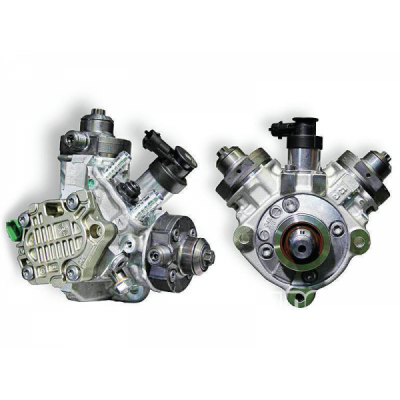How Common is CP4 Failure?
18th Nov 2022
by Jordan Davidsen

Consider any vehicle of any kind. What's the first thing that comes to mind as being the most integral part of that vehicle’s function? It is almost undeniable that everyone’s first thought is the engine. An engine cannot run without fuel, and fuel can’t run an engine unless it has a functional fuel injection pump.
A fuel injection pump is almost exactly what it sounds like: a pump that injects fuel into an engine. However, what is not evident from the name is that the CP4 fuel injection pump uses pistons and a plunger to move diesel into the fuel system’s common rail and injectors at an incredibly high pressure (sometimes up to 30,000 psi!). This gear-driven pump uses less volume than previous versions, and creates more pressure. This makes it more desirable than previous versions, or other kinds of fuel injection pump systems.
Unfortunately, the CP4 has its cons as well. Above anything else, the CP4 has a tendency to fail around the 100,000 mile mark at a greater rate than normal. Some sources state that the failure rate of the CP4 is anywhere from 5% to 7%. It's unfortunate that this revolutionary injection pump system has a high failure rate. But it’s also important to know. When you know about the CP4’s tendency to fail, you can learn the signs and common causes of failure so you can prevent it.
CP4 pump failure is most due to a lack of lubrication in the pump. The lubrication in a fuel injection pump allows for less friction. A more lubricated pump causes less erosion of the metal. With a lack of lubrication, metal shavings caused by erosion can begin distributing throughout the entire fuel system. This renders the entire thing useless, and can lead to catastrophic failure.
Even if your engine simply stops working, the failure of a CP4 pump due to metal erosion is not an easy fix. The debris won’t only ruin your injector pump, but it will affect your entire fuel system. If your vehicle is out of warranty, that fix can cost upwards of $10k.
So, how can you avoid CP4 failure? First, it’s important to take precautions. One example is being mindful about what fuel you’re putting in your engine. More reputable, higher-grade diesel fuels are best for CP4 pumps. You can also try using additive lubricant. This ensures that your fuel pumps are always properly lubricated. It may also be worthwhile to invest in a filter for your system that can protect the fuel flow from metal shavings and other contaminants.
The CP4 is a great fuel injection pump, but it comes with its own unique set of drawbacks. Looking for CP4 parts, additives, or more information about fuel injection pumps? Be sure to contact us or check out our website.

